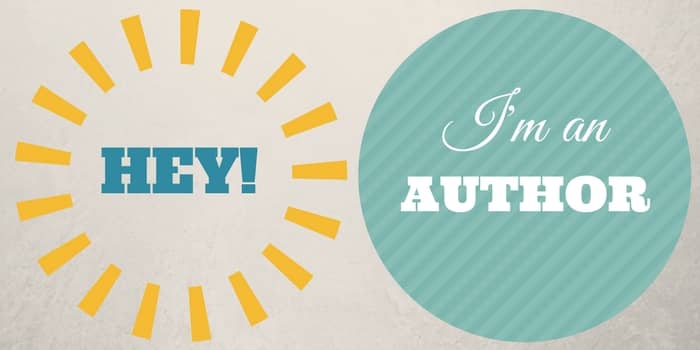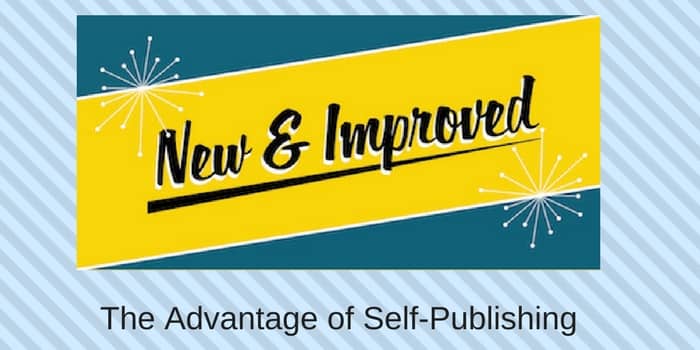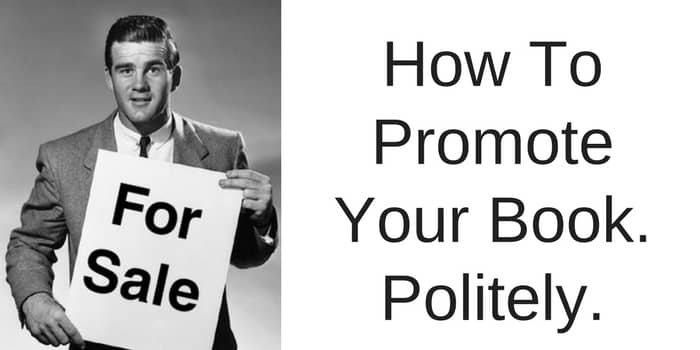
How To Promote Yourself As An Author
Selling books is hard work and also a very good way to alienate yourself as an author. Social media is full of self-published authors trying to ‘flog’ their ebooks and all most of them achieve is to be ignored or unfollowed.
In recent weeks I have had quite a few comments and messages asking about the difference between promoting and selling and how to build a social network and following, so I thought I might share some of my ideas and approaches to author and book promotion here.
I have to say from the outset though that these are methods that work for me, and are not a set of rules to follow. The other point I must make is that they all involve a lot of time, patience and hard work.
Profiles and Bios: I see so many badly written author bios on social media. This is usually the first thing people read about an author, yet so many give very little thought to this short piece of text. Usually, they are full of cliched expressions and quite honestly, boring. Author of a book, International Bestselling Author, Award Winning Contemporary Romance Author, and so on. Quite honestly, who would want to follow? And are they honest?
However, this one does attract attention: Will eventually grow up and get a real job. Until then, will keep making things up and writing them down. This is the short Twitter profile of Neil Gaiman.
Think carefully about the short profiles you use on social media, and the longer version used on retailers, websites and blogs. Tell people why you are worth following. Why you are interesting, and not that you are an egotistical author who is likely to pound them with ‘buy my book’ messages.
Blogging: For me, this is the most important part of promotion. Blogs take a lot of time and effort, but the long-term rewards are far, far greater than any other means available.
Every post tells a story and exposes your character and personality as well as your knowledge and opinions. It also opens the door to discussion and debate. But the key benefit is in an often forgotten fact. Every single post adds to your Search Engine data. My blog now has over 1,000 posts that are all listed on Search Engines and almost 65% of my blog visitors come from Google, Bing or Yahoo. Over the years it has built from almost no visitors per day to a current average of around 4,000 page views per day.
The mistake a lot of author bloggers make though is to view their blog as some kind of daily diary and post about family, pets, rants and raves and then from time to time, something interesting and relevant about their books or writing. Successful blogs are clearly focused and build a reputation on a particular topic. Mine is about publishing, books and writing.
Blogging is about posting regularly, often and on topic.
Facebook: A must of course, but similar to blogs, using your personal profile as your Facebook image is not wise. Again, you want to be known for books not babies. Use a dedicated Facebook Page and keep it on topic.
Twitter: Yes, it’s really a monster, but totally indispensable now as a means of finding new followers, bringing traffic to a blog, attracting interest in your writing as well as building a useable social platform in itself. Keeping on topic again is key. One of the benefits of Twitter is that you can have multiple accounts and I use this ability to separate my own account from ones I use for promotion.
Website: Old fashioned now perhaps, but still very important as it is the place to have a page of information and buy links for books. I direct all my book promotion back to my website because it has the full book description, reviews, multiple retailer buy links and book trailers. I never link back to one retailer such as Amazon. What if the person interested in my book doesn’t have a Kindle but has a Nook or iPad? Or what if they are only interested in a paperback version? Linking back to a web page allows all of these choices.
Behaviour: My last item, but probably the most important one. Ranting, raving, arguing, SHOUTING and generally being a pain in the neck, even just every now and again, is a great way to undo all the hard work.
When one thinks about the image of an author, these are not what people expect. Ignoring bad reviews, idiots, trolls and all manner of provocation is the only way to retain a good image.
All of the above are elements in building a reputation. That is really what promotion is all about.




I’ll add my two cents to this, though, many might not agree with what I have to say. Allot of what I’ve seen blog-wise has nothing to do with the author, the person, their beliefs, their stances. It’s just about writing, promoting, marketing, publishing, and what others are writing, and what readers are reading. I know they are somewhere, but I haven’t seen them – writers who write about something else. There are other topics out there: history, religion, science, arts, culture, politics, economics, social issues etc. I haven’t seen writers take on controversial issues, and not just writers, but film makers either. Those who want to be commercial, to have commercial success, won’t post anything controversial. Instead, they’ll limit themselves to talking about the weather, coffee, their lack of inspiration, their methods of writing, sites with funny pictures et all. It’s quite a dull affair. Of course, they’re afraid of being controversial, because they think they might upset somebody, because they want to appear nice and dandy for all visitors. While, I’m sure there are others who totally lack motivated stances on issues and the necessary arguments. Maybe writers want to promote just the writer, but not the real person behind the writing. They might be afraid that prolifers might not buy their books, if they happen to be prochoice, or that religious people won’t buy their books because they’re atheists or vice-versa.
This is a real shame in my opinion, because actors, singers, writers, these guys have the power to put in motion so much change in society, but they don’t act upon it. They limit themselves to their careers and that’s it. Few of them actually have the guts to speak out about what they believe and about what they don’t like. They don’t criticize their governments or politicians, they don’t emit opinion vis-a-vis international conflicts, they don’t say their thoughts of the real physical reality, which every one of us has to confront every day. Of course, there is a minority of these people who do have opinions and who do voice them, but the voice of a tiny minority against a silent majority isn’t that well heard. I think writers shouldn’t be afraid to be honest, shouldn’t be ashamed of what they believe, shouldn’t fear speaking their minds, cause after all – we don’t have the right of free speech to talk about the weather.
A few weeks ago I’ve debated an issue over a woman’s blog. That woman was a singer, and her job was that of a singer teacher. Guess what her hobby was? Economics. So we debated quite vigorously about the banking system, regulations, bailouts, policies, solutions et all. We didn’t agree, but there was no flaming. No cursing. It was a polite exchange of wits and facts. I think some people just don’t like debating or disagreeing with other people, because either they’re lazy to mount an argument (in which case, they don’t know enough about the subject), or just don’t have the time do it. In the latter case, that’s no excuse no to write your own ideas and beliefs about OTHER topics besides writing. You don’t have to reply to feedback. That’s just an option, not an obligation.
That’s why I think writers shouldn’t forget about themselves, ~citizen writer~, while their promoting their books and themselves as authors.
You’re right, it is boring when people continuously blog about their work, and I’ve been guilty of the same thing at times. I’m new to blogging, but I have found that more people follow my Facebook pages and my website when I add photos of interest, or support a musician, or a cause that I find worthy, such as Idle No More or the BFC. I understand that many authors don’t want to expose themselves to the public, but don’t we all express a little of ourselves through our writing, through our characters, our plot? My first two novels are historical romance, but from a readers viewpoint it is obvious where I stand regarding spirituality or Native Americans and the atrocities of a government bent on destroying them. We all have different interests, opinions, and causes, that’s what makes us unique. Sure, there will always be those who throw stones at us, but if you’re true to yourself, others will follow.
I thought I would chime in here – Derek, this is a great post for writers about writing, which is why I clicked on it, and there are valuable tips here. But I have to agree with Serban and Terrie. Every writer I come across writes about writing-related stuff that might catch the eye of fellow writers but must certainly be dead boring to the rest of the world. Last year I really struggled with blogging because I was falling into the same thing eveyone does and was frankly boring myself. This year I’m going to blog with two questions in mind: what would my target audience find interesting and what do I really enjoy blogging about. If each blog answers those two questions, I think become a regular blogger that people want to read (that’s the theory, avyway)
I agree Sabrynne and also with many of the points made by Serban and Terri. Selecting what to write about in a blog is though, no matter what the topic or topics, the key to a successful blog. My ‘on topic’ description really points to consistency. There is an expectation from readers as to what they will find in a blog, and particularly important for those who subscribe. I have subscribed to many blogs after finding one or two posts interesting, only to have to unsubscribe later when my reader starts to fill up with totally unrelated nonsense and irrational rants.
You are asking yourself the perfect question. What would my target audience find interesting? If you are starting with this in mind, I’m sure you’ll succeed with your blog.
Every point makes sense for me with the exception of the web page. I’ve heard many writers advocate for them, but could’nt it be done as a static page on your blog?
Then again, maybe I’m just too lazy to set one up…
Derek said “web site”, not “web page”. :-) If what you have to put up warrants just a single page, or even a couple of pages, then using static pages on your blog is probably the best way to go, Andrew. But maybe you have a lot to put up that does indeed warrant a complete and separate site.
Either works well Andrew and Steve. The only reason I prefer a dedicated website for my book pages is because A, I have one to use, and B, because blogs tend to be a little ‘busy’ with information, due to post streams and widgets.
The other benefit of a website separate from a blog is in Google Analytics. Traffic to my website gives me a better indication of interest in my books, and even in individual titles.
The best way of course is to have dedicated book pages on both! Double your search engine listings!
I did have my book information on a static page on my blog, but I just kept adding background information and character profiles and novel information until it was a nightmare to organize on my blog dashboard and to link to (grated, I use a free blog template on WordPress; a custom template might make that easier). I ended up making a website and putting all of my static book information on it, publishing schedule, links to buy my books, etc. It’s easier to navigate and gives me one more point of contact on the internet.
Or, in simple terms: blog for fresh content, website for static content.
Another great post, Derek. Well done and thank you. I agree with the ideas expressed above by Serban, but I think it’s important for an indie author to build a following first, before tackling controversial subjects.
Hello Derek!
As a fairly long time friend and fan, who has bought 9 of your books, (why would I by a book that didn’t interest me?)
I was surprised to see that you had unfollowed me! I’ve decided to be the bigger man and follow you! :D
All the best and continued success in 2013!
P.S. One twitter account is quite enough for me.
Twitter is far from perfect Kathleen. I have one friend on Twitter, and our connection gets cut about once a week and have to re-follow each other. So I’ll check your account pronto!
And only nine books? lol Thank you. :))
Another promotion option: Publish a short story online. Short Stories Cafe (www.shortstoriescafe.com) has launched to help writers grow a fan base, or generate buzz for a new book launch. For each published story, the author’s bio links back to the author’s personal website, bringing more traffic as their readership grows.
There is also another danger that authors and artists blogging sometimes fall into: abandoning variety and going with only that which has received the most comments. I recently stopped following a blog by an author/artist because now all her posts are the same. She use to blog daily about her quite enchanting life and her work and interesting things that were going on in her part of the world. But now pretty much every single post contains only her dog walking in the countryside and “inspirational” quotes from other people. That’s it. Nothing of her own words or what else is happening in her life or with her work. All dog and quotes, exclusively. Pretty effing boring. I suspect she’s doing it because in the past those types of posts got positive feedback, and now that’s all she does. Literally.
Variety makes a blog exciting. Posts about your dog–not so much.
Inspirational quotes, the dog, the cat, the coffee… Hey give me something interesting about the mailman, or the UPSman at least, lol. I agree with you LJ, abandoning diversity in favor for some unidirectional/one side issue or topic is quite the turn off.